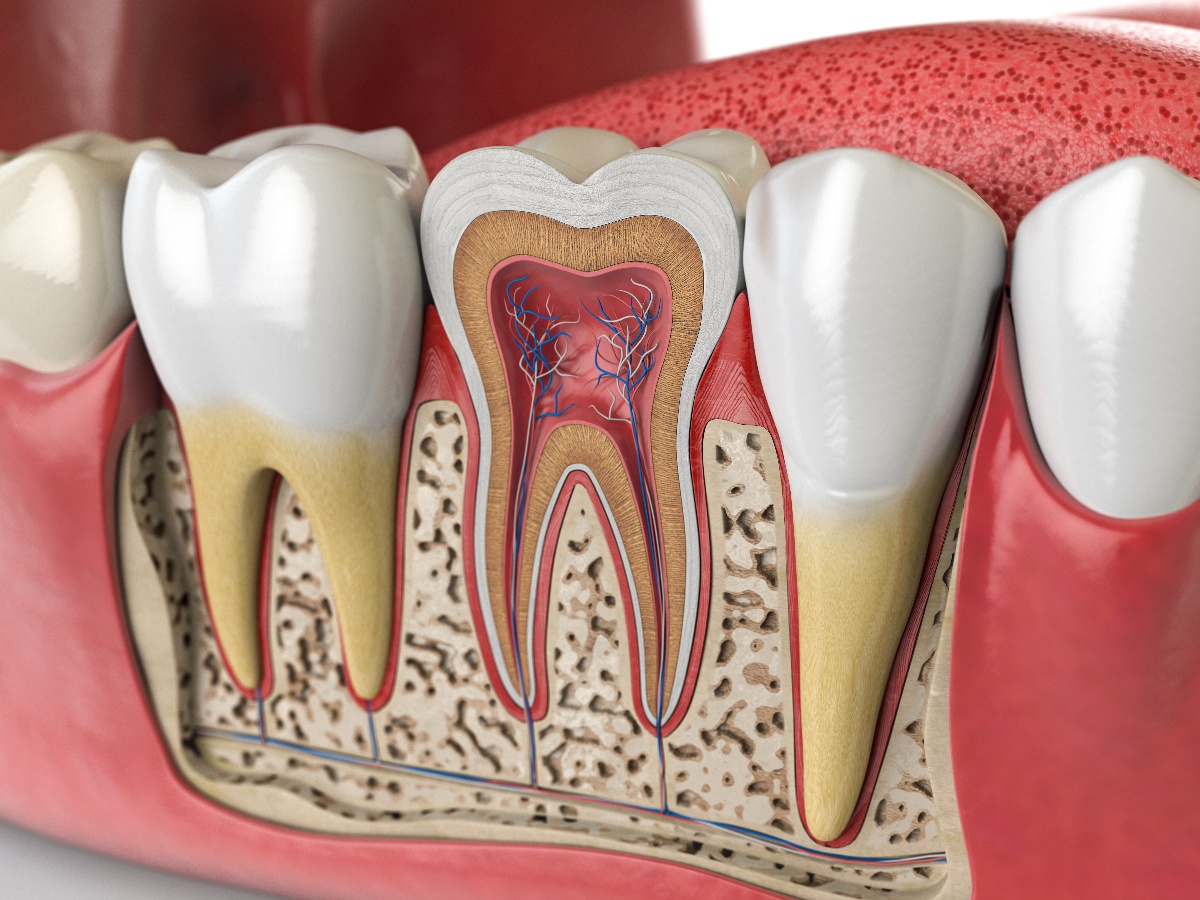Your smile is one of the first things people notice about you. It plays a crucial role in your appearance, confidence, well-being, and quality of life. Many people with dental problems, such as missing teeth, worn-down enamel, persistent pain, or overall dissatisfaction with their smile, consider a complete smile makeover. When it comes to transforming your oral health and smile, few treatments are as comprehensive and impactful as full-mouth rehabilitation.
This advanced dental treatment plan combines various procedures to enhance oral health and the function and aesthetics of your teeth, gums, and jaws. The decision to undergo full mouth rehabilitation is significant, requiring careful consideration of your current oral health, your ultimate goals, and the various factors that influence the success of such treatments.
This article will explore full-mouth rehabilitation to help you decide if it is right for you.
What is Full Mouth Rehabilitation?
Full mouth rehabilitation is a customized, all-encompassing approach to restoring oral health, function, and aesthetics. Your dentist may combine restorative, cosmetic, periodontal, and sometimes orthodontic procedures to plan and sequence your treatment to achieve optimal results.
The process begins with a comprehensive evaluation of your oral health, bite alignment, jaw function, and aesthetic concerns. Next, your dentist develops a personalized treatment plan tailored to your specific goals and situation. Your full mouth rehabilitation may include procedures such as:
- Dental implants to replace missing teeth
- Crowns or bridges to replace or restore missing, damaged, or decayed teeth
- Porcelain veneers or bonding to improve the appearance of misshapen or discolored teeth
- Gum surgery to address periodontal disease or aesthetic concerns
- Orthodontic treatment to correct crooked teeth or bite issues
- Tooth extractions or root canal therapy, if necessary
The ultimate goal of your full mouth rehabilitation is to restore proper bite alignment, improve oral function (chewing, speaking, etc.), and enhance the overall appearance of your smile. It is a comprehensive solution that addresses multiple dental issues simultaneously, providing a beautiful and long-lasting result.

When is Full Mouth Rehabilitation Recommended?
Full mouth rehabilitation may be recommended if you have extensive dental issues that cannot be adequately addressed through single-tooth treatments or partial restorations. It is often the best course of action when multiple aspects of your oral health and appearance require comprehensive attention. Some common situations that can benefit from full mouth rehabilitation include:
- Severe tooth decay or loss: If you have experienced widespread tooth decay or erosion or are missing several teeth due to trauma, disease, or other factors, full mouth rehabilitation can replace missing teeth and restore your smile and proper function.
- Advanced gum disease: Severe periodontal disease can lead to tooth loss, bone deterioration, and other significant oral health problems. Full mouth rehabilitation addresses these issues and helps restore healthy gum tissues.
- Bite problems or misaligned jaws: Severe bite disorders, such as a deep bite, underbite, or crossbite, may require orthodontic treatment combined with restorative procedures to restore aesthetics and function.
- Extensive wear or damage to teeth: Years of grinding, clenching, or other habits can cause significant wear on tooth surfaces, leading to issues with function and appearance. Full mouth rehabilitation can restore proper tooth anatomy for a beautiful smile and the ability to chew efficiently and speak clearly.
- Chronic jaw pain and headaches: Issues like TMJ disorders can result in chronic pain. Full mouth rehabilitation can correct bite issues that contribute to discomfort and other problems, such as sleep loss.
- Functional problems: Resolving difficulty performing essential functions such as chewing or speaking, often due to extensive tooth loss or damage, can dramatically improve one’s overall well-being and quality of life.
- Aesthetic concerns: Some individuals may seek full mouth rehabilitation purely for cosmetic reasons, such as severely discolored, misshapen, or crooked teeth or a “gummy” smile.
In many cases, a combination of these factors may necessitate a complete mouth rehabilitation approach to achieve optimal oral health, function, and aesthetics.
The Benefits of Full Mouth Rehabilitation
Full mouth rehabilitation offers a wide range of advantages that go beyond just a beautiful smile. By addressing multiple dental issues simultaneously through a comprehensive treatment plan, you can enjoy benefits such as:
- Improved oral function: Full mouth rehabilitation aims to restore proper bite alignment, improving your ability to chew, speak, and carry out other oral functions easily and comfortably.
- Enhanced aesthetics: Cosmetic procedures like veneers, crowns, and teeth whitening can brighten your smile, boosting your confidence and self-esteem.
- Durable and stable results: With proper care and maintenance, the restorations and treatments involved in full mouth rehabilitation can provide durable, long-lasting solutions to your dental problems.
- Increased comfort: Full mouth rehabilitation can alleviate pain, discomfort, and other dental-related problems by addressing issues like dental infections, tooth decay, and misaligned jaws.
- Better oral health: Treating underlying conditions like gum disease, tooth decay, and bite problems can help prevent further deterioration and promote oral health.
- Improved speech clarity: Full mouth rehabilitation can correct tooth positioning and bite alignment issues, allowing for clearer enunciation and more precise articulation.
- Easier oral hygiene maintenance: Properly aligned teeth and restoration of damaged surfaces make it much easier to brush and floss for effective plaque removal.
- Prevention of bone loss and other complications: By treating conditions like gum disease and replacing missing teeth with dental implants, full mouth rehabilitation can help prevent further bone loss in the jawbone and other serious complications.
- Enhanced nutrition due to improved chewing ability: When teeth are restored to their proper form and function, chewing becomes more efficient, allowing you to eat a wider variety of foods for a well-balanced diet.
The Process of Full Mouth Rehabilitation
Full mouth rehabilitation is a multi-step process that requires precise planning and execution by an experienced dental team. While the specifics may vary depending on your individual needs, the general process typically involves the following stages:
Initial Consultation and Evaluation
- During this phase, your dentist will thoroughly examine your mouth, take X-rays, and discuss your concerns, goals, and medical history. This comprehensive evaluation helps determine the best course of treatment for your specific situation.
Treatment Planning
- Based on the initial evaluation, a detailed treatment plan is created that outlines the necessary procedures, their sequence, and an estimated timeline. This plan ensures a coordinated and systematic approach to your full mouth rehabilitation.
Preparatory Procedures
- Before the restorative and cosmetic treatments can begin, any underlying issues, such as tooth decay, gum disease, or necessary extractions, must be addressed. This preparatory phase helps create a healthy foundation for the subsequent procedures.
Restorative Treatments
- The restorative phase may involve procedures like dental implants, crowns, bridges, or root canal therapy. These treatments aim to restore the function, strength, and stability of your teeth and bite.
Cosmetic Enhancements
- Once the restorative work is complete, cosmetic procedures like veneers, bonding, or teeth whitening may be utilized to brighten your smile and achieve your desired aesthetic results.
Bite Adjustment and Refinement
- After placing the restorations, your dentist will carefully adjust your bite to ensure proper alignment and comfortable function. This step may involve minor adjustments or reshaping of the restorations.
Maintenance and Follow-up
- Full mouth rehabilitation is a long-term investment in your oral health. Regular follow-up visits and diligent oral hygiene practices are essential to maintain the longevity and integrity of your new smile.
Your dental team will ensure open communication throughout the process. They will ensure your questions are answered and your concerns are promptly addressed so that the future outcome meets your expectations for a healthy, functional, and beautiful smile.
Schedule an Appointment
The oral health professionals at Palmetto Dental Arts are experts in full-mouth rehabilitation and smile enhancement. To learn more, call us or contact us online.







